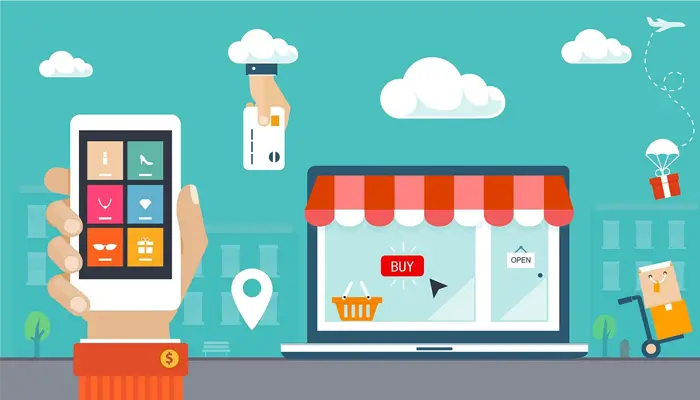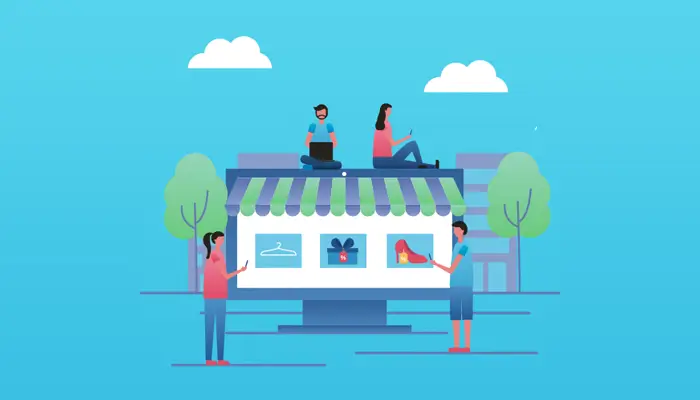E-commerce and its impact on local economies
Anúncios
The rise of e commerce has significantly transformed the way business is conducted bringing about possibilities and obstacles, for economies. With consumers opting for online shopping platforms traditional physical stores are undergoing changes. Research on the effects of e commerce on businesses reveals a pattern where digital marketplaces are putting pressure on brick and mortar stores prompting them to rethink their operational strategies. This shift also impacts employment in the sector as job requirements and roles adapt to the demands of a digitalized economy.
The incorporation of e commerce into real estate markets has broader effects that extend beyond consumer behavior to affect the value and usage of commercial spaces. As online shopping continues to expand local economies must adjust their infrastructure and regulations to accommodate this landscape. These adjustments lead to outcomes depending on how prepared and flexible local businessesre in embracing this digital transformation.
Anúncios
While e commerce poses challenges for retailers it also fosters the growth of small scale businesses. Enables local products to reach global audiences. Data available to the shed light on the increasing presence of commercial activities, with many domain names associated with business ventures.
In the age new opportunities arise for innovation enabling economies to reach wider markets beyond their usual boundaries. This showcases the significant impacts of commerce, on local economic environments.
Fundamentals of E-Commerce
The rise of e commerce represents a shift, in how productsre bought and sold driven by its swift growth and technological advancements. E commerce operates through business models like marketplaces direct to consumer brands and subscription services utilizing technologies such as secure payment systems, data analysis and artificial intelligence to simplify and improve the digital shopping experience.
Anúncios

This transformation has modernized methods providing consumers with unparalleled convenience, options and access to a worldwide market from the comfort of their homes or mobile devices. Additionally e commerce has empowered entrepreneurship by allowing small businesses and startups to reach an audience without requiring physical infrastructure or location limitations. Consequently e commerce plays a role, in driving progress and innovation while reshaping industries, consumer habits and global market trends.
Evolution and Growth
The trajectory of e-commerce began with rudimentary online transactions and has since expanded into a global phenomenon. In the early 1990s, e-commerce was in its infancy, with companies experimenting with online sales. Growth accelerated with the advent of secure online payment systems and widespread internet access. Today, e-commerce is a significant part of the global economy, experiencing consistent growth year over year.
Key Technologies
In e commerce there are a technologies that play crucial roles:
- Secure Payment Systems: These systems are vital, for handling transactions. SSL encryption, such as Secure Socket Layer forms the foundation of online commerce security;
- Mobile Commerce: With the increasing popularity of smartphones mobile commerce enables shoppers to make purchases from any location making shopping more convenient and accessible;
- Data Analytics: This technology assists e commerce companies, in comprehending customer behavior tailoring experiences to individuals and enhancing service offerings.
Business Models
Online shopping works using business strategies each tailored to make money in ways:
- B2C (Business, to Consumer): Businesses sell products or services directly to online shoppers;
- B2B (Business to Business): Transactions happen between two companies, like a supplier and a store;
- C2C (Consumer to Consumer): Websites like eBay allow people to sell items, to one another;
- Subscription Services: Companies offer services or products for a fixed fee.
E-Commerce Impact on Local Economies
The shift, from brick and mortar stores to shops has caused significant changes in local economies affecting job markets and supply chains. The rise of e commerce has changed the nature of jobs creating opportunities in areas like digital marketing, logistics and customer service while displacing workers in traditional retail roles such as sales and cashier positions. This shift has led to a reassessment of the skills needed emphasizing know how and specialized knowledge in business.

Additionally e commerce has disrupted the relationships within supply chains altering how manufacturers, distributors and retailers interact. Through to consumer sales facilitated by e commerce platforms manufacturers can now bypass distribution channels reshaping how products are distributed and challenging the roles of middlemen. These changes in supply chain dynamics have implications, for economies by affecting businesses that rely on retail channels and requiring adjustments to succeed in a more digital market environment.
Retail Sector Disruption
The rise of online shopping poses hurdles for local shops. Customers are drawn to the ease and competitive prices offered on the internet causing a drop, in storefront visits and sales, for businesses. This shift could eventually reshape the dynamics of communities as some stores struggle to stay afloat. Yet resourceful retailers can leverage e commerce to enhance their brick and mortar presence by offering services like ‘click and collect.’
Shifts in Employment Patterns
The evolution of e commerce impacts the job market, by generating employment opportunities while also displacing retail positions. As online sales surge there is a growing need for workers in IT, logistics and customer service within the e commerce sector. This shift, in employment trends requires workers to adapt and acquire skills to thrive in the economy. Additionally job opportunities may become more decentralized allowing for increased flexibility and remote work options.
Local Supply Chain Dynamics
As online shopping expands local distribution networks are changing. The focus is now, on speed and effectiveness responding to customers demands, for deliveries. Local vendors might have to adapt their processes to match those of e commerce shipping services or risk losing out to nimble rivals. Nonetheless this shift also creates chances for local enterprises to tap into markets using online platforms.
Mitigating Negative Effects
The rapid growth of online shopping is changing how local stores operate leading to a need, for a shift to balance expansion with community well being. Traditional physical stores are facing competition from online retailers risking not just their market share but also the jobs of local workers and the lively atmosphere of neighborhood hubs.
To tackle these issues businesses are embracing methods using tools to improve customer interactions and teaming up with local partners to support community commerce and maintain the distinct character of their areas. By working and adapting strategies local retailers can navigate the challenges of the era while fostering strong interconnected communities that play a key role, in economic prosperity and social unity.
Policy Responses
Government officials have adopted strategies to assist community economies amidst the impact of shopping changes. They introduce tax programs to create an environment, for both internet based and traditional stores. Laws could require competition guaranteeing that online shops and physical stores follow rules. Encouraging businesses to embrace platforms is crucial as it allows them to broaden their customer base while still supporting local commerce.
A table of policy responses might include:
| Policy Measure | Objective | Implementation Example |
|---|---|---|
| Tax Parity | Equalize tax burden | Sales tax collection for online sales |
| Fair Competition Laws | Prevent market monopolization | Anti-trust regulations against dominant e-retailers |
| Small Business Support | Encourage digital adoption | Grants for local retailers to establish online stores |
Community Engagement
Local communities play a crucial role by actively engaging with and supporting their retailers. Consumer education campaigns emphasize the value of shopping locally, outlining the impact of consumer spending on community health and services. Community events can be organized to promote local businesses. These strategies work in concert, creating a comprehensive approach to navigating the changes brought on by e-commerce.
Future Trends in E-Commerce
In the changing world of online shopping new trends are set to transform the industry offering experiences, for customers and exciting opportunities for businesses to grow and adapt. Whether its using augmented reality (AR) and virtual reality (VR) for shopping experiences or tapping into voice commerce and chatbots for smoother customer interactions these developments are changing how people connect with brands and make purchases.

Additionally the growing focus on sustainability and ethical consumption is driving a desire for eco products and transparent supply chains pushing companies to rethink their strategies to meet evolving consumer demands. By embracing these trends businesses can stay competitive spark creativity. Take advantage of fresh pathways to success, in the fast paced world of digital commerce.
Innovations in Delivery
Businesses are looking into using drones to cut down on delivery times and expenses. This automated method has the potential to transform the leg of deliveries providing customers with immediate access, to their purchases. The adoption of self driving delivery vehicles is increasing. These vehicles are predicted to boost supply chain efficiency by making deliveries non stop without depending on drivers.
Emerging Market Opportunities
The blending of online shopping, with media is opening up buying avenues. Companies can use influencers and tailored ads to connect with buyers on social platforms. The rising consumer focus on sustainability is driving demand for eco products. Online marketplaces that highlight and curate goods are expected to attract interest and loyalty, from consumers.





